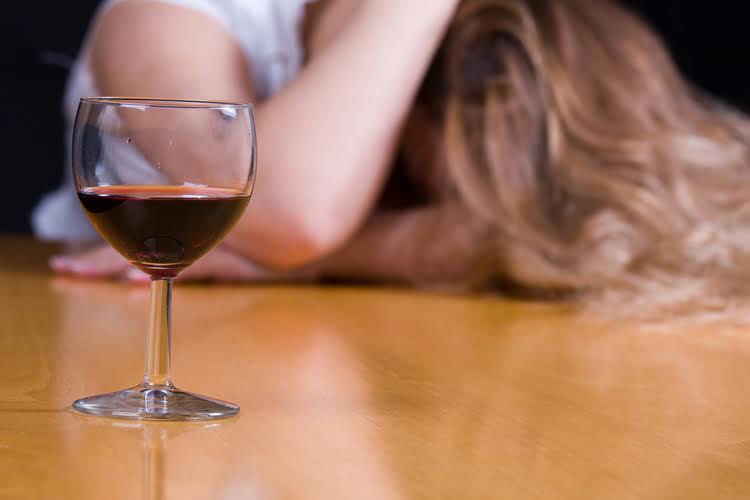The 4 Stages of Alcohol and Drug Rehab Recovery
Content
Some people have a difficult time identifying the root causes of their addiction and what triggers them to turn to substance abuse. During the short-term sobriety stage, a person in treatment will usually get introduced to a 12-step program or a similar recovery community. In addition, they will typically start a therapy program that may include medication. Some individuals choose to move into a sober housing facility. Professionals in the field widely accept three principles of recovery. This means that recovering people should abstain from using any substances or alcohol.
What are the 5 phases of recovery?
What Are the Five Stages of Change? The five stages of addiction recovery are precontemplation, contemplation, preparation, action and maintenance. Read on to find out more about the various stages.
A positive support system has been found to be a catalyst for excelling in life and for overcoming adversity. Accepting support when it is needed and also reciprocating support in return helps to foster such necessary healthy relationships throughout life. When you reach out for help from a professional alcohol and drug rehab program, you begin the first stage of your recovery, treatment initiation. When a person has completed a substance abuse program, he or she may be able to join an alumni program. This can be another way to find support in addition to standard support groups. Alumni groups can help a person stay connected with the people who went through the program at the same time as them.
SAMHSA’s National Recovery Month
You can build a support network through support groups, sober living houses, an alumni program, and continued individual or family therapy. When you have the support you need after rehab, you are more likely to manage your recovery successfully. Now that you have acknowledged that you have an addiction, the next step is to do something about it.
- Addiction is a complicated and difficult disorder, and getting to the point of accepting help and treatment can be a long road.
- Some of the most helpful strategies for dealing with cravings are summarized in the acronym DEADS.
- Additionally, they are living proof that if you are willing to put forth the necessary effort, addiction recovery is possible, and it is possible for you as well.
Nevertheless, experts see relapse as an opportunity to learn from the experience about personal vulnerabilities and triggers, to develop a detailed relapse prevention plan, and to step up treatment and support activities. But attention to the addiction is only one facet of recovery. Recovery involves rebuilding a life— returning to wellness and becoming a functioning member of society. Every person needs a comprehensive recovery plan that addresses educational needs, job skills, social relationships, and mental and physical health. Therapy may be critical to resolving underlying problems that made escape into substance use so appealing in the first place. Because recovery involves growth, families need to learn and practice new patterns of interaction.
What causes relapse?
When working on the 12 steps of addiction recovery, it is important to keep in mind that this is a process, not a destination. The 12 steps have since been adapted for use in other addiction recovery programs, such as those for sex, gambling, and drug addiction. The action stage of early recovery might also involve addressing their mental health with dual diagnosis treatment, a holistic approach designed to treat both addiction and co-occurring mental health issues at the same time.

Some of the most helpful strategies for dealing with cravings are summarized in the acronym DEADS. There are no lab tests that define recovery and no universally agreed-on definition of recovery. For many experts, the key components of addictive disorder are compulsive drug use that continues despite detrimental consequences, and the development of cravings with the inability to control use. Addiction develops over time, in response to repeated substance use, as the action of drugs changes the way the brain responds to rewards and disables the ability to control desire for the drug.
What are the 3 principles of recovery?
The Brain in Recovery looks at how the brain changes as individuals enter and progress through addiction recovery, exploring the connections between neurobiological processes and recovery-related behaviors. At a certain stage, you’ll realize that days, weeks, or even months have passed since you last thought about drinking or drugs. When you’re not obsessed by one thing, life opens up and you can appreciate the full beauty of every day. But if you stay present and use whatever tools work for you, you’ll soon find yourself navigating life’s challenges stone-cold sober, and that’s a pretty amazing feeling.
- It may include rediscovering a work or social role, finding new recreational interests, or developing a new sense of spiritual connection.
- Every person needs a comprehensive recovery plan that addresses educational needs, job skills, social relationships, and mental and physical health.
- The stages of addiction recovery are different for everyone, and the roadmap is not one-size-fits-all, but by following certain steps needed to reach recovery, you’ll find healing from addiction more accessible than ever.
- Yes, pets are a responsibility, but caring for an animal makes you feel loved and needed.
- Feel free to share the infographic with friends or family who might benefit from understanding these stages, or scroll to learn more about them individually.
They may be in denial and are unable to understand the consequences of their actions for themselves and others. Substance use disorder and addictive substances affect countless people every year. Overcoming addiction is difficult and complex, and recovery must be customized to each individual person in order to meet their specific needs. Oftentimes individuals who are addicted are plagued by immense feelings of shame and guilt due to the rippling impact of their addiction on themselves and on their loved ones, leading to a negative sense of self. Furthermore, being unable to reduce the frequency of their addiction or stop altogether implies “weak will” (although that is not true, please read #6).
The 12 steps of recovery are a set of guidelines initially developed by Alcoholics Anonymous (AA) by Bill Wilson as a means of helping people who suffer from alcoholism recover from their addiction and achieve sobriety. Recovery can be one of those things that we think about for a while, but when it comes to actually doing it, sober house we don’t know quite where to start. It may seem confusing when thinking of where to go and what to do. This may lead us to put things off for longer than we should. In order to make getting started a little easier, here is a brief explanation on how to start the recovery process, and some of what you can expect along the way.

They may not be aware of the problem or understand its seriousness. They may also not be sure if they can overcome their addiction. Recovery from substance use disorders is a long and difficult process that requires professional help.
Find support for your addiction recovery
” we asked Mountainside’s Senior Family Wellness Clinician, Bruce Dechert, to weigh in on the challenges that families face before and during treatment. With over 40 years of experience in treating the suffering alcoholic and addict, Clearbrook Treatment Centers can assist you in jumping starting your addiction recovery process. If you or someone you love is struggling and are ready to make a change to your life, contact our Admissions Specialists today. We are available 24 hours a day to answer any questions you may have.
As advocates of mental health and wellness, we take great pride in educating our readers on the various online therapy providers available. MentalHelp has partnered with several thought leaders in the mental health and wellness space, so we can help you make informed decisions on your wellness journey. MentalHelp may receive marketing compensation from these companies should you choose to use their services. Another benefit of a professional therapist is an assurance of acceptance. Furthermore, you may be more likely to open up to a therapist.
Stages Of Recovery From Addiction
During the action stage, the person has made significant changes in their lives and is committed to change. This stage of change is characterized by prolonged periods of abstinence and the inclination to turn to professionals for help before or https://goodmenproject.com/everyday-life-2/top-5-tips-to-consider-when-choosing-a-sober-house-for-living/ after relapse. However, they are also still acutely aware of the benefits they perceive from alcohol or drug addiction. This is a critical stage for family members and treatment facilities because the person is more likely to listen to reason.
